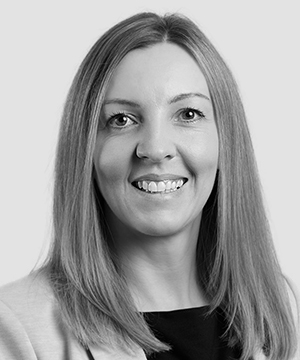Claim settled against Surrey and Sussex Healthcare NHS Trust for broken arm after falling from a bed
Penningtons Manches LLP’s clinical negligence team has settled a claim against the Surrey and Sussex Healthcare NHS Trust for a client whose elderly husband suffered a fractured humerus following a fall from a hospital bed at East Surrey Hospital
Her husband died 18 months later, although his death was caused by his underlying medical condition rather than the fall itself.
The deceased was an 83 year old man who suffered from dementia, Parkinson’s disease and near blindness. He was often confused as a result of his dementia and his memory was very poor. Prior to these events, he was living at home with the care and assistance of his wife. In October 2011, the deceased suffered a fall at his home and hurt his back. In the afternoon he was taken to hospital for further investigations and a decision was made to admit him overnight for observation. Despite the decision to admit him to a short stay ward, the deceased was left for 26 hours in a bay on the A&E ward as no bed space was available elsewhere.
During this period, the deceased became increasingly confused and agitated as he was unable to understand why he was there and what was happening. He was eventually transferred to the Acute Medical Unit (AMU) 26 hours after his arrival at A&E. No formal assessment of his risk of falling was made by the nursing staff in the A&E department or the AMU.
The deceased was placed in a standard hospital bed in a bay. Shortly after his admission to the AMU, he became increasingly distressed and, according to the nursing evidence, was trying to climb over the bedrails which were said to be in the upright position. This was witnessed by a healthcare assistant, who, rather than using a call bell to summon assistance from another member of staff, left the deceased unattended. In her absence, he suffered a significant fall from the height of his bed and injured his arm and shoulder. Despite the obvious bruising, the gravity of the fall, complaints of pain in his shoulder and restricted movement in his arm, an x-ray was not performed until 24 hours later.
The x-ray identified that the deceased had fractured the neck of his humerus. He was treated conservatively and his family were not informed of the fall or the fracture. The deceased was unable to remember or communicate what had happened to his family due to his dementia and the first the family learned of it was when they received a Serious Untoward Incident Report four months later.
Unfortunately, the deceased did not recover to a sufficient condition to enable him to be discharged home and was instead transferred to a nursing home where he remained until his death 18 months later.
Penningtons Manches pursued a claim on the basis that the defendant trust failed to manage the deceased appropriately. The nursing staff failed to formally assess or adequately consider the deceased’s risk of falls given that he had been admitted to hospital following a fall. As an elderly patient in a confused and agitated state suffering with dementia and Parkinson’s disease, he was at higher risk. Had the hospital appreciated his high risk, it would have placed him in a high-low bed, provided crash mats and/or ensured that he was not left unattended in such a distressed state which jeopardised his safety. The defendant trust accepted that it failed to manage him appropriately and that, if it had done so, the fall and the consequent injury would have been avoided. The trust also accepted that it unacceptably delayed diagnosing the fracture. Settlement was reached after the defendant admitted liability and made an offer to settle which our client accepted. The trust also offered an apology for its failings, which was greatly appreciated by our client.
Lucie Prothero, who specialises in hospital falls cases within the clinical negligence team at Penningtons Manches and settled this case, comments: “We are continuing to see a significant rise in the number of claims and enquiries relating to falls amongst the elderly, often those suffering with chronic conditions and dementia, as in this case. The falls often take place in the hospital setting and also in care homes or when social care is provided in the individual's home. Sadly, the consequences of these falls – such as painful fractures, head injuries and even death – are often tragic due to the vulnerability of these patients. It is vital that elderly patients are properly considered for their risk of falls and that appropriate safeguards are put in place to manage that risk so that these sad outcomes are prevented.”
 Return to case studies
Return to case studies





